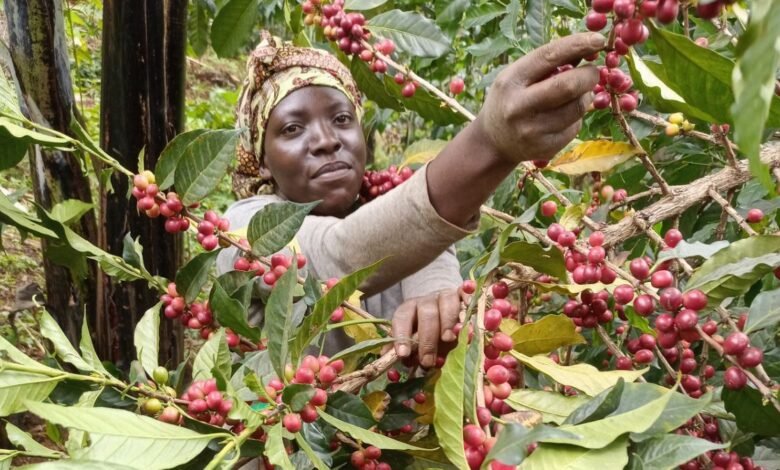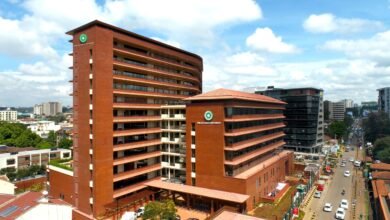
Ugandan coffee farmers are reaping the rewards of a surge in global coffee prices, with exports soaring in recent months.
The coffee price surge is generally attributed to climate disruptions in major coffee-producing countries such as Brazil.
In April, Uganda coffee exports rose to nearly 85 million U.S. dollars, a 42 percent increase from the same time last year, according to the latest coffee report.
The coffee harvest season is almost coming to an end in some parts of Uganda, and farmers are plucking their very last Robusta coffee beans — an iconic product in Uganda.
But there is a deep sense of joy and fulfillment, as the recent rise in coffee prices offers a better income for many farmers who have long grappled with low and unstable prices.
“We have come out of this season smiling because farmers have waited for too long to earn this much. We spend a lot but the returns are usually small. But it has been different this season indeed,” said Mackline Assimwe, a coffee farmer.
The rise in the price of coffee is also influenced by the geo-political tensions that are disrupting supply from major producers, and the changing weather patterns.
“The weather of last season was not favorable because we had a long period of sunshine, which didn’t allow our coffee to produce more, but this season – from the beginning of this season up to now the weather is balanced. We are getting adequate rain and sunshine,” said Regis Byamugisha, another farmer.
Also Read: Uganda Helps Push Kenya’s GDP to 5.6% in 2023
In April, Uganda exported more than 390,000 bags of Robusta Coffee valued at 61.5 million dollars, and Arabica Coffee valued at 23.3 million dollars.
Latest figures indicate the average price per kilo was 3.62 dollars – almost a dollar higher than the price in the same month last year.
“There is an increase in the demand for Ugandan Robusta coffee not only in the Middle East or the nearby African countries but even the Europeans. We are now, I think, competing with the Vietnamese as well as Brazil and other countries,” said Mohamed Abdelsamad, a coffee exporter.
However, earnings for local processors and roasters are not as much because they now have to pay more for the raw materials.
As coffee prices rise, the direct cost of sourcing beans increases significantly. This impacts the overall cost structure of a business like this cafe leading to tighter profit margins.
A coffee shop owner says that she faces a tough decision about whether to pass increased costs onto the customers.
“(If) I’m to drink coffee, you won’t tell them that coffee is scarce right now, we are increasing the price. So what happens if the prices go down – will you still tell them that the prices have gone down and the cup of coffee is cheaper? It is very hard, so most of the time what we do is to keep the prices constant,” said Juliet Nantongo, the owner.
The coffee value chain supports about 1.8 million households in Uganda and contributes about a third of the country’s export earnings.
Europe is the main destination for Uganda’s coffee exports. But the country also ships to Sudan, Morocco, Egypt, and South Africa.





